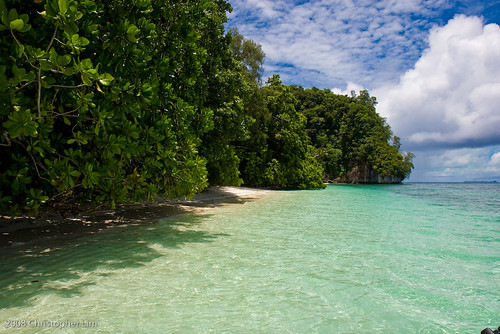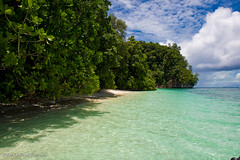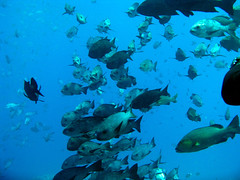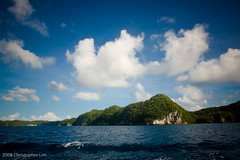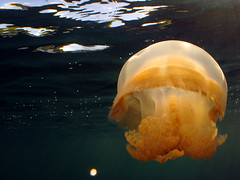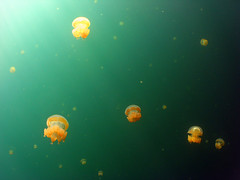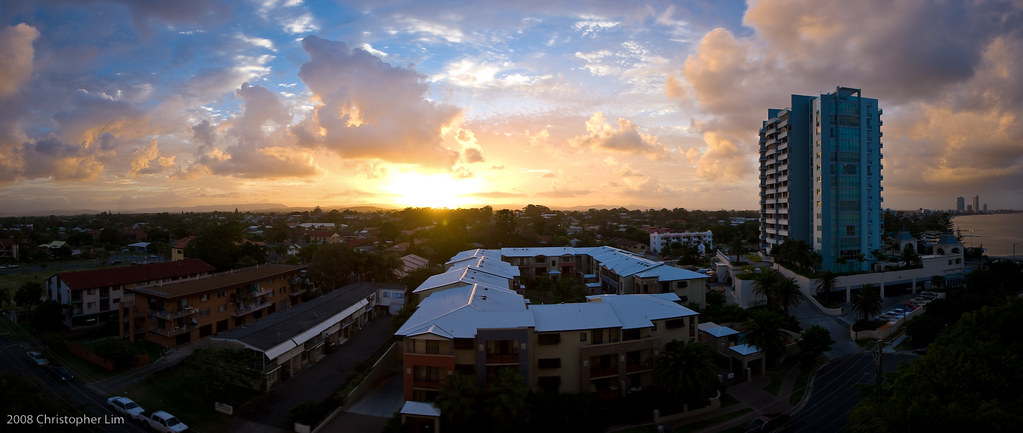Suunto Stinger dive computer... check.
Canon Powershot A720IS... check.
Underwater case for said digicam... check.
8 gigs of SD memory for said digicam... check.
Rash guard... check.
Mmm. Stinger.

All my new equipment is ready to go. So am I.
Diver Down!
Another dip in the ocean blue, this time in Puerto Galera, about two to three hours by car and then another hour to the resort (called Oceana) by boat.
Man, there's something about boats that makes me uneasy. Fortunately there are some unique remedies that, strangely, seem to combat seasickness. Skittles are strange and magical at keeping nausea at bay (it HAS to be Skittles), and if you have an orange or tangerine, peel off the rind and hold it up to your nose to sniff. It is unbelievably calming and reduces fatigue as well. And then you get to eat some of the yummy fruit. Can't complain about that.
What's on the menu this time? More corals, more fishes (many of them this time, more than Anilao) and things hidden in nooks and crannies. Since my underwater case is brand new, I needed to test it to ensure that it wouldn't leak at depth, so the first dive is camera less. It's a practice dive, taking things easy and getting back into the feel of things.
And now, for the real dive. With my camera! Wooo! This time, we head on over nearer to the shore where more boats are around. More divers, it would seem. This area specializes in... drumroll ...
WRECKS! Not one, but 3!
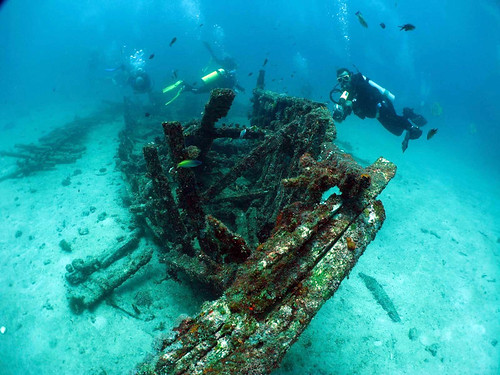
All sorts of things live on the derelict ship.
Morays,

shrimp,
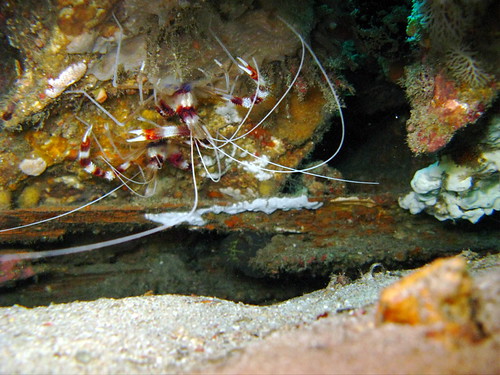
a lionfish,
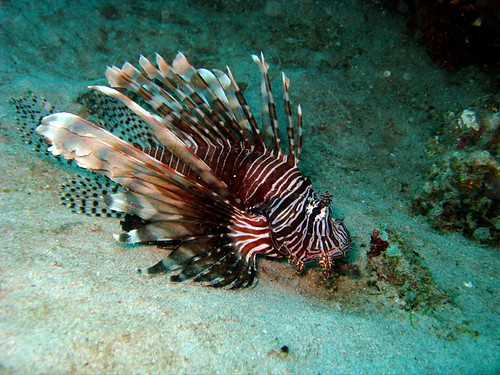
starfish,

The wreck itself is teeming with life of all kinds. So many fishes and corals make their home in the ribs of the boat itself. The shrimp hang out underneath the hull in the dark shadows, morays find a comfy nook somewhere to curl up in, and the starfish slowly creeps its way all over. It's a beautiful sight. This wreck is made entirely out of wood, so things seem to be pretty clear, a lack of particulates in the water allowing for good visibility.
There's also plenty of vegetation. I really love the unique plants that live down there.

Look at this thing. I love these puffy green things. The insides probably influence Hollywood movies with aliens.

Here's some other inhabitants.

While we visit the ships, a group of curious batfish come by to take a peek at what's going on.


These guys are big, slightly larger than a foot from mouth to tail. I wonder if they're delicious.
Somewhere along the way, a big lumbering shadow is spotted.

Pawikan! It's so big. Beautiful.
Other random things seen: A wee nudibranch hanging out in the sand.
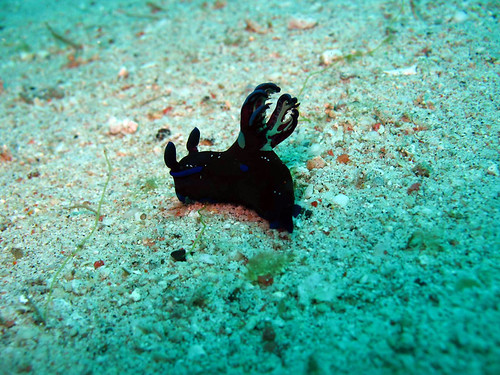
Some strange fish that stays very still, even as I stick my lens up to its face. This is the first underwater photo I took with my camera.
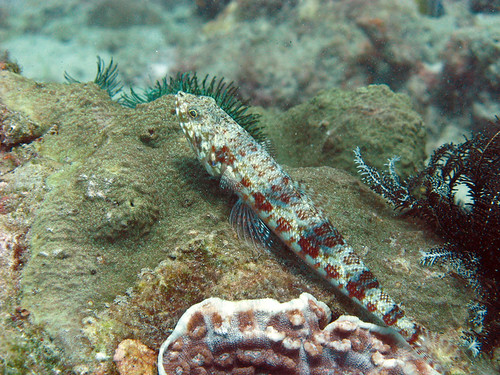
Ooo. A snake.
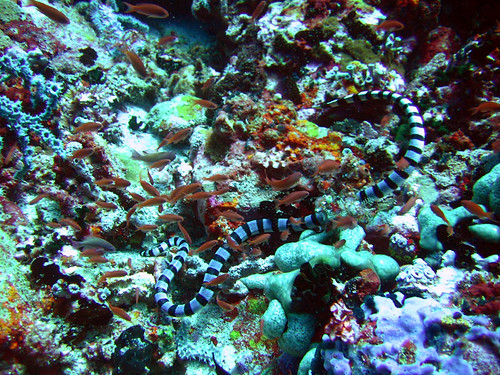
The next day, we wake up again at the asscrack of dawn, and this time take the boat further out to an island on the horizon. The island itself is shaped like a boot (like Italy, except standing straight up) and we stop near the tip of the boot where some rocks are pointing out of the water. It turns out the rocks are the apex of an underwater mountain, which we are going to explore. Descending into the depths, we have to fight a current, and since we're constantly on the move, I'm not really taking photos, just trying to keep up, attempting to relax as I go along to conserve air.
I turn around, and half of our group is gone. Huh?
Continuing to streamline myself and cut through the current, we arrive at what seems to be a break in the mountain. The other divemaster instructs us to grab a hold of something so we can see over the edge. Being pushed around, I let go to find a clearer spot and... find myself getting further and further away from everyone. Current... strong... Fighting my way back to the rocks, I grab hold and peer over, seeing some gigantic fishes swimming about in a vast canvas of blue.
Returning to the ship, I get reaaaaaaaaly seasick, and thanks to the other divers who brought tangerines/oranges, I'm OK, but really tired. Half of our group decides to go back to the wreck and take it easy, while half of the group will persist.
Oh, what originally happened to the other half of the divers? Mel's regulator broke and started to freeflow. She had to be taken out before her air ran out.
Last dive: Back to the wrecks. Ah, relaxing. No currents to worry about. Except for Ices, who shot up too fast and had to breathe some gold ol' pure oxygen.
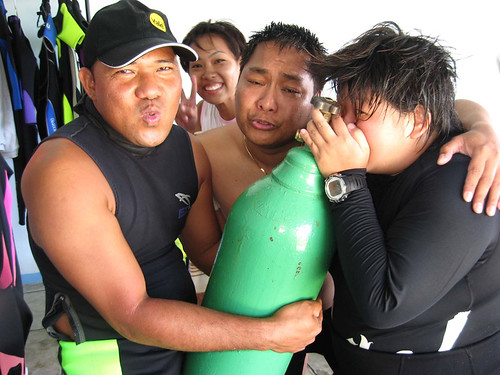
The current where the other group went was a lot stronger, and they had issues with their ascent, so they all had to breathe some pure oxygen too. Luckily for us, we stayed at the calm, relaxing wreck area, so we're all A-OK.
Until next time.

Tonight, I leave for Palau. Swimming with the sharks. Sounds great.
